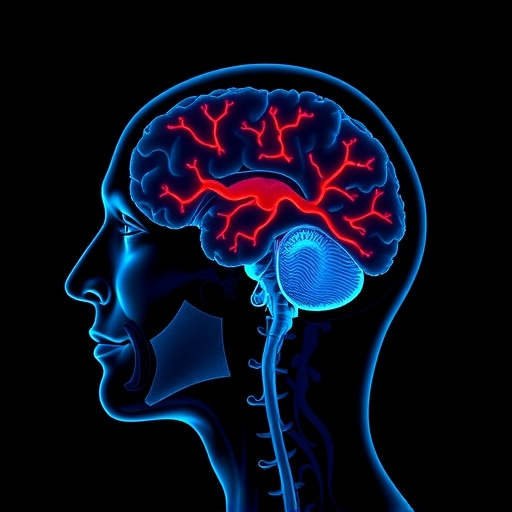In recent years, the quest to unravel the complexities of Parkinson’s disease (PD) has taken an innovative leap forward, with researchers continually seeking refined methods to diagnose and stage this neurodegenerative disorder more accurately. A groundbreaking study led by M.J. Russo and U.J. Kang, within the renowned BioFIND cohort, introduces a transformative diagnostic and staging framework that promises to reshape how established Parkinson’s disease is understood, assessed, and ultimately managed. Published in the latest volume of npj Parkinsons Disease, this research paves the way for more precise clinical stratification and personalized therapeutic interventions, holding immense potential to invigorate both research methodologies and patient outcomes.
Parkinson’s disease, a progressively debilitating illness characterized primarily by motor symptoms such as bradykinesia, rigidity, and tremors, has long confounded clinicians due to its heterogeneous presentation and progression. Traditional diagnostic criteria, while valuable, often fall short in capturing the nuanced clinical variability and underlying pathological mechanisms that dictate disease trajectory. This new framework presented by Russo, Kang, and colleagues leverages multidimensional clinical data and biomarker profiles from the BioFIND cohort, a well-established dataset composed of deeply phenotyped individuals, to develop a more dynamic and granular staging system.
One of the pivotal innovations in this framework is the integration of multimodal biomarkers with conventional clinical assessments. The researchers have incorporated cerebrospinal fluid (CSF) analytes, neuroimaging metrics, and comprehensive motor and non-motor symptom evaluations into a composite model that transcends the oversimplified binary diagnosis of PD. This approach not only enhances diagnostic precision but also unveils distinct pathophysiological subtypes, enabling clinicians to tailor management plans more effectively based on an individual’s specific disease profile.
The BioFIND cohort serves as an invaluable resource in this endeavor, composed of well-characterized patients with established Parkinson’s disease alongside healthy controls. By applying this new staging system to BioFIND participants, the researchers demonstrated its superior discriminatory power in delineating early from advanced disease stages, as well as differentiating between various phenotypic manifestations of PD. This represents a significant advancement over prior frameworks that primarily relied on motor symptom severity alone, disregarding critical non-motor symptoms that considerably impact patient quality of life.
From a technical standpoint, the study employed sophisticated statistical modeling and machine learning algorithms to parse the vast datasets collected. This advanced computational analysis enabled the identification of patterns and clusters of disease features that correlate strongly with progression rates and therapeutic responsiveness. Notably, the framework also accounted for symptom fluctuations and heterogeneity in treatment responses, addressing a key challenge in clinical trials design and interpretation within Parkinson’s research.
The implications of this diagnostic and staging framework extend well beyond academic circles. For clinicians, it offers a practical tool to refine diagnostic accuracy in routine outpatient settings, improving early interventions that could slow neurodegeneration or ameliorate symptom burden. For patients, more precise staging heralds personalized treatment regimens potentially enhancing quality of life and functional independence. Furthermore, understanding disease subtypes can facilitate prognosis discussions and help patients and families prepare better for disease evolution.
In terms of research impact, the paradigm shift introduced here advocates for a move away from one-size-fits-all approaches to heterogeneous disorders like PD. This research reinforces the necessity of incorporating biomarkers and non-motor symptomatology in PD characterization, aligning with the emerging consensus that Parkinson’s is a multisystem disorder with diverse pathological underpinnings. The proposed framework therefore acts as a template for future studies aiming to develop or refine neurodegenerative disease models.
Critically, the study’s validation of the framework in the BioFIND cohort sets a strong precedent for replication in other diverse populations. The robustness of findings across demographic groups, varying disease durations, and treatment backgrounds remains an important consideration for generalizability and clinical adoption. Russo and Kang highlight how expansion of biomarker panels and longitudinal data integration will further enhance the fidelity and utility of the staging system over time.
Moreover, this novel schema can influence drug development pipelines by enabling stratified enrollment in clinical trials. Tailoring therapeutic approaches to specific disease subtypes or progression stages may increase trial efficiency and drug efficacy signals, accelerating the advent of disease-modifying agents. This is especially pertinent given the historical difficulty in translating promising preclinical interventions into meaningful clinical benefit for PD patients.
Beyond clinical applications, the framework elucidates underlying biological processes driving PD heterogeneity, linking discrete symptom domains with specific neurodegenerative pathways. This deeper mechanistic insight opens avenues for targeted biomarker discovery and novel therapeutic targets. The study exemplifies the synergy of clinical observations, molecular biology, and computational techniques in advancing neurological disease research.
Educationally, the accessibility of this diagnostic framework to academic and clinical practitioners fosters improved understanding of Parkinson’s complexities, promoting interdisciplinary dialogues. As awareness of multifaceted PD phenotypes grows, integrating such frameworks into medical curricula and continuous professional development programs can enhance diagnostic acumen across the healthcare spectrum.
In conclusion, the work of Russo, Kang, and the BioFIND collaborative represents a critical milestone in Parkinson’s disease research. Their innovative diagnostic and staging framework not only addresses long-standing challenges in disease characterization but also charts a path toward personalized medicine with profound implications for patients, clinicians, and researchers alike. As the neuroscience community embraces this novel approach, it anticipates a future where Parkinson’s disease management is more precise, predictive, and patient-centered—ushering a new era of hope for millions affected worldwide.
Subject of Research: Parkinson’s disease diagnostic and staging framework development
Article Title: New diagnostic and staging framework applied to established PD in the BioFIND cohort
Article References:
Russo, M.J., Kang, U.J. & for the BioFIND Study. New diagnostic and staging framework applied to established PD in the BioFIND cohort.
npj Parkinsons Dis. 11, 151 (2025). https://doi.org/10.1038/s41531-025-00992-3
Image Credits: AI Generated




